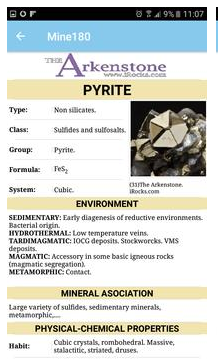I am writing a mineral guide for smartphones which classifies minerals according to their formation environment.
From sugestions on this related question, I changed the classification to:
- Sedimentary
- Magmatic
Tardimagmatic - Metamorphic
- Hydrothermal
- Supergenic??
Exogenous
The question mark is because comments on other related question sugest supergenic would not be a good term to include weathering resulting minerals from igneous, sedimentary or metamorphic bodies on surface.
Would it be appropiated to classify weathering minerals as Superficial alteration. The first time I wrote the DB I refered it as Exogenous, but it looks no correct acording to answers on first linked question.
Just Weathering maybe? That would be acceptable on the US?
Edit
From @Fred answer and @Gimelist previous answer, I will finally classify them as:
- Sedimentary
- Magmatic
- Metamorphic
- Hydrothermal
- Supergenic
- Weathered
Thanks. I hoppe this is the best for my future users/students.
I will post a link to this on a page "about the classification", encouraging the students to join the site and ask their questions.
